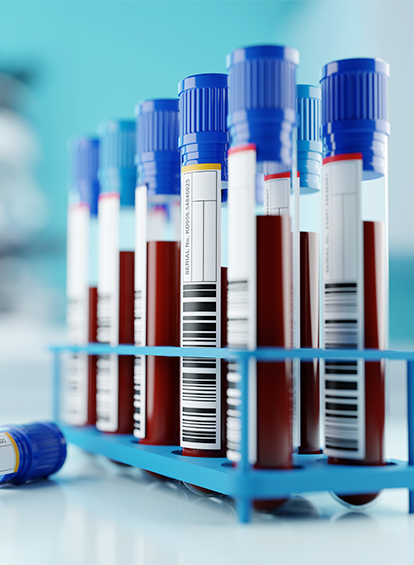Adult Psychiatry
Post-Traumatic Stress Disorder (PTSD)
Post-Traumatic Stress Disorder (PTSD) is a serious mental health condition that can occur after experiencing or witnessing a traumatic event. It is characterised by persistent distressing symptoms that affect a person’s ability to function in everyday life. PTSD can develop shortly after the trauma or appear months or even years later, but effective support and treatment can help individuals regain control and improve their quality of life.

What is it?
PTSD arises when the mind remains in a state of high alert following trauma, as if the threat is still present. This ongoing stress response can lead to a range of emotional, psychological, and physical symptoms. Individuals may find themselves constantly on edge, plagued by intrusive memories or nightmares, and going to great lengths to avoid anything that reminds them of the traumatic event.
The condition often brings feelings of detachment, persistent negative thinking, and difficulty trusting others. Without intervention, these symptoms can escalate and interfere with work, relationships, and daily activities. However, PTSD is treatable, and many people respond well to therapy and structured support.
Book an appointment
Additional Information

Key Features of PTSD
PTSD symptoms include intrusive recollections of the trauma, such as distressing flashbacks or dreams. Avoidance behaviours are common, where individuals steer clear of places, people, or thoughts associated with the trauma. Many also experience a negative shift in mood and thinking—feeling numb, disconnected, or overwhelmed by guilt and shame. Increased arousal, such as being easily startled, struggling with sleep, and displaying irritability or recklessness, is also typical.
Common Causes of PTSD
PTSD can result from a broad range of traumatic experiences. These include direct exposure to serious accidents, physical or sexual assault, natural disasters, or military combat. It may also develop following the sudden loss of a loved one, prolonged exposure to abuse, or repeated traumatic incidents in childhood or adulthood. The severity or duration of the trauma, and an individual’s psychological and environmental context, often influence how PTSD develops.
Who is at Risk?
While anyone who has experienced trauma can develop PTSD, some individuals are more vulnerable than others. Those with a personal or family history of mental health conditions may be at increased risk. Limited support networks, ongoing exposure to trauma, or previous experiences of abuse or neglect can also contribute to vulnerability. Additionally, individuals who experience intense fear, helplessness, or horror during the traumatic event may be more susceptible.
Assessment and Treatment
PTSD is diagnosed by a qualified mental health professional based on detailed clinical evaluation, usually using criteria outlined in the DSM-5. For a diagnosis to be made, symptoms must persist for more than a month and significantly impair the individual’s functioning. Treatment options vary depending on the individual but are typically centred on evidence-based psychological therapies.
Cognitive Behavioural Therapy (CBT) and Exposure Therapy can help individuals process traumatic memories and reframe harmful thought patterns. EMDR (Eye Movement Desensitisation and Reprocessing) is another highly regarded approach that aids in reprocessing traumatic experiences. In some cases, antidepressant medications, particularly SSRIs, may be prescribed to reduce symptoms. Additional support may include mindfulness techniques, peer support groups, and strengthening of personal support networks.
When To Seek Help
It is important to seek help if PTSD symptoms persist and interfere with your ability to function or find enjoyment in life. This includes ongoing nightmares, flashbacks, avoidance of key activities or people, and difficulty managing emotions or relationships. The earlier help is accessed, the more effective treatment tends to be. Recovery is possible with the right professional support.
At The Clinica, Dr. Arora provides comprehensive assessment and personalised treatment plans for adults with PTSD. As an outpatient centre, we support individuals who are medically stable and motivated to engage in therapy. We also offer support and training for families, educators, and organisations seeking to understand PTSD more fully. To book an appointment or speak with our team, please call 01344 946363 or email info@theclinica.co.uk.
Frequently Asked Questions
Yes. While some people experience symptoms soon after the trauma, others may not develop PTSD until months or even years later. Delayed onset is not uncommon.
Not necessarily. While some therapies involve revisiting trauma memories, this is done safely and gradually. Other approaches, like EMDR, work without needing to describe the trauma in detail.
No. PTSD can result from a range of experiences including accidents, assault, childhood abuse, loss, or witnessing distressing events. Each person’s experience is valid.
Yes. PTSD is associated with sleep disturbances, increased risk of chronic illnesses, digestive issues, and lowered immune function, often due to the prolonged stress response.
Yes. With the right treatment, many people experience significant improvement or full recovery. Ongoing support and therapy can help individuals lead fulfilling, balanced lives.
Specialised Clinics
General Enquiries
Please send your enquiry to us and our Practice Manager will be in touch shortly. Alternatively, if you would rather speak to us or your enquiry requires our urgent attention, please call us on 01344 946363.







